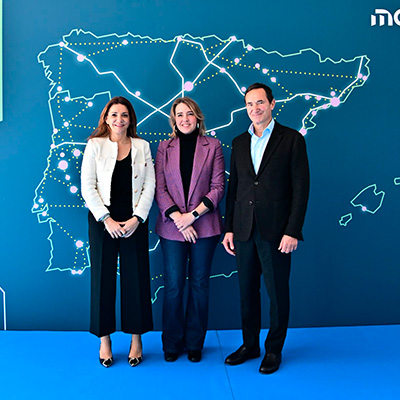However, the report, “Green Molecules: The Upcoming Revolution in the European Employment Market,” reveals the transition will require reskilling and upskilling 60% of professionals to equip them with crucial skills needed to meet the growing green demand.
“The future of work is undoubtedly greener and more digital. This report provides practical steps to drive sustainability agendas while empowering millions of people with meaningful and sustainable jobs,” said Jonas Prising, ManpowerGroup Chairman and CEO. “Addressing climate change does not mean choosing between people and the planet. Preparing the workforce with in-demand skills is key to driving this transition. Governments and employers must come together to match bold commitments to reducing reliance on fossil fuels with strong actions to prepare for a greener future.”
“Climate change poses one of humanity's greatest challenges and the green energy transition is crucial to guarantee our planet's future.” said Cepsa CEO Maarten Wetselaar. “At Cepsa, we aim to spearhead this revolution through our own transformation to become a European leader in the production of green molecules such as green hydrogen and biofuels to decarbonize energy-intensive sectors like heavy transport and industry. In this transition, partnerships and inclusivity prove critical. Our collaboration with ManpowerGroup represents an essential next step to unlock the incredible job creation opportunity embedded in the energy transition, channeling data-driven insights into targeted upskilling programs, workforce planning, and accessible training initiatives. Together we can equip professionals with the skills demanded by emerging green roles and ignite inclusive workforce development empowering millions.”
The report forecasts that over the next 16 years, the countries that will lead in green hydrogen production and related employment growth will be Spain with 181,000 new jobs, followed by the United Kingdom with 173,000, Germany with 145,000, and France with 105,000.
Countries like Italy, Spain, and Germany face the widest skills gaps that must be addressed through vocational training, workforce mapping tools, and public-private partnerships. Additionally, women's participation in green economy jobs is increasing but remains below 40% in most countries. Spain and Italy are the exceptions, with women projected to hold over 50% of direct green jobs by 2040.
The report also outlines 10 key proposals to equip professionals for the green hydrogen economy:
- Matching the demand for professionals with the supply of competencies - Estimating skills gaps, encouraging continuous upskilling, improving access to critical skills information, and public-private collaboration.
- Rethinking the university system - Anticipating needed capacity, updating knowledge, accelerating entry to the workforce, fostering company connections, and developing specialized degree programs.
- Supporting vocational training - Expanding dual models, incorporating soft skills training, and aligning program offerings with local investment plans.
- Nurturing non-formal training and talent hubs - Utilizing corporate academies, overseeing quality, and collaborating on skills catalogs.
- Promoting diversity and mobility - Incentivizing women in technical fields, enabling reverse mentoring, encouraging geographic mobility, and supporting worker transitions.
- Fostering public-private partnerships - To jointly plan training and workforce strategies.
- Embracing talent without borders - Enabling international collaboration and vocational promotion.
- Driving mass dissemination - Raising public awareness and visibility of opportunities.
- Attracting and retaining talent - Accelerating environmental commitments and promoting green employer brands.
- Conducting new skills mapping - Evolving classifications to adequately capture green molecules skills.




